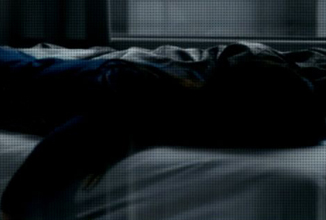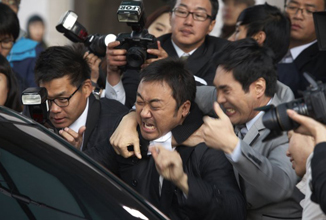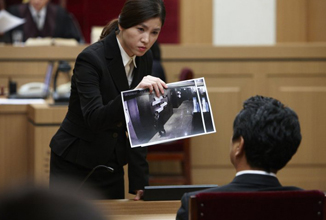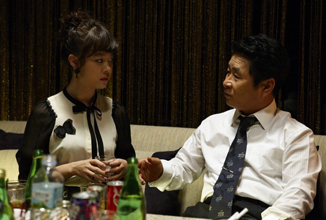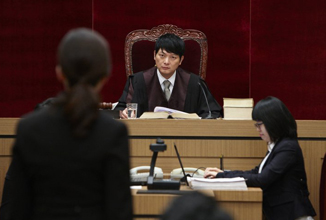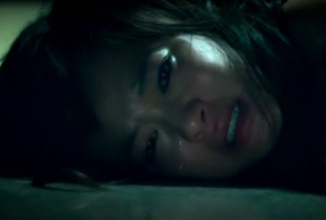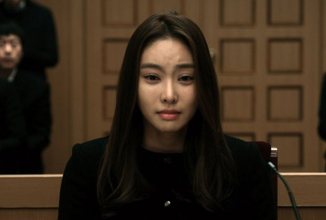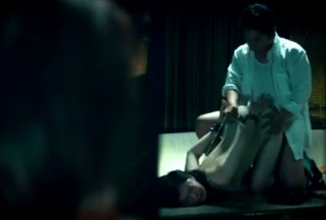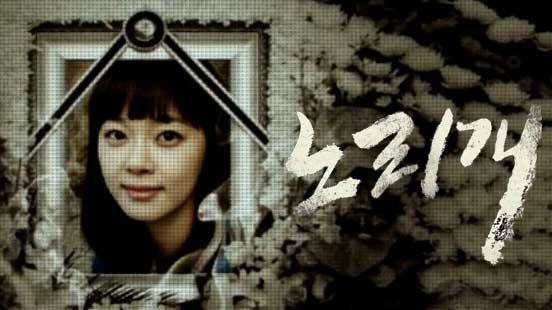
 |
|||||||||
Review: Before I get into a full-on dissection of Norigae, in its own right, I feel mention must be made of the near plethora of films appearing in recent years that take issue with the ongoing manner in which Korean law deals with sex crimes and its tendency to give perpetrators of often violent sexual acts against innocent victims little more than a slap on the wrist in the name of 'justice'; all too regularly citing the human rights of the guilty above those of the violated, in the process. In fact, so prevalent, ongoing and sadly unchanging has this increasingly incendiary issue become, that it would almost be more of a surprise if Korean directors didn't feel the need to centre narratives around it and though some might say the sheer number of cinematic examples adds up to overkill, in this case perhaps more than any other I would wholeheartedly disagree. Of the many recent examples of Korean films taking issue with the law's handling of sex crimes and questioning whether the far from harsh sentences all too regularly given to the guilty can even be called justice, those with narratives based on real-life cases have - from my perspective, at least - largely and perhaps unsurprisingly resonated to the greatest extent; succeeding as all the more poignant, heartbreaking and ultimately shocking indictments of laws in urgent need of reform than those films choosing to tell wholly fictional tales... and that (hopefully, neatly enough) brings me full circle back to 'Norigae':
At the very beginning of 'Norigae', Korean lettering on a wholly black screen states "The following story is fictional. It doesn't depict any person, place, organisation or event" but while that disclaimer is indeed correct it's obviously placed to specifically sidestep any possible legal wrangling from individuals or organisations. For, 'Norigae' was obviously inspired by the true life story of the suicide of actress Jang Ja-yeon in 2009; considered to be as a result of depression brought on by her being forced to sexually 'service' up to 31 prominent entertainment media figures. While the first court case segment, peppered with Jang-ho's media broadcasts on the case and his efforts to uncover irrefutable evidence as to what Ji-hee suffered, and by whom, certainly allows and even facilitates the gradual introduction of each of the main characters of the prosecution and defence, to my mind it does feel just a little overlong in terms of the running time taken until the flashbacks to Ji-hee (pre-suicide) begin to supplement and add context to the trial. However, I fully admit that this is only a minor personal niggle and once Ji-hee's personal story starts to unfold in earnest the deliberately measured (almost incremental) means by which her plight is slowly unveiled in tandem to the proceeding trial works superbly well to keep viewers gripped on tenterhooks as the tension gradually builds to an almost palpable level.
The inclusion of a subplot of sorts (though it does eventually direct relate to the main plot) detailing Jang-ho's search for Ji-hee's diary - said to contain the names of all those guilty of abusing her and providing a 'blow-by-blow' account of specific instances - adds somewhat of a mystery element to proceedings, not only bringing a time-sensitive excitement to the court centred aspects (preventing the film from ever treading water) but also allowing the referencing of a noteworthy theme relating to a number of characters: That is, the fact that all those close to Ji-hee or from whom she asked for help feel personally responsible for her death as a result of not being there for her when she needed them most; all except the truly guilty whose abusive actions really did directly lead to her decision to take her own life. Whether inadvertent failure to help those in need warrants such feelings of guilt and responsibility isn't for me to say, but it is another of a number of worthy questions raised by 'Norigae'. While the aforementioned gradual detailing of the horrendous treatment suffered by Ji-hee is (increasingly) shocking enough, when her full story finally comes to light - cinematically realised exactly as it needs to be by director Choi Seung-ho - it will likely stir your anger at the same time as breaking your heart: On two separate occasions during interactions between Ji-hee and media mogul Hyeon Seong-bong (Ki Joo-bong), Ji-hee repeatedly states "My name is Jeong Ji-hee... My name is Jeong Ji-hee... I'll be a good actress"; her obvious desperation for this man - whom she sees as someone who could create or utterly destroy her career - to remember her as an actress and more than just a female body to take pleasure from being both difficult and painful to watch. The final instance of her repeatedly saying her name sees her with tears streaming down her face (actress Min Ji-hyeon giving a superbly emotive performance) as she holds her hands up, wrists together, knowing she's about to be bound with restraints and viciously sexually abused - the only faint hope she has is that her acquiescence will somehow make him think of her as a person and help her find the acting career she so desperately desires.I almost guarantee you that these and the ensuing scenes will make you question if such impermissible, artocious acts could really be allowed to happen in supposedly cultured circles... Sad thing is, reality has shown they already have been.
On watching 'Norigae' for the first time, I have to admit to questioning whether I fully believed the depictions of the guilty parties. I found them rather one dimensional and lacking in depth; caricatures of evil instead of fully fleshed-out characters. However, in hindsight my opinion changed somewhat and I came to feel that any individuals willing, and able, to commit heinous acts such as these have their self-serving desires as their singular focus above all else - and no thoughts of moral right or wrong; regardless of the pain and suffering caused. As such, not only do their inner personas indeed largely have but one dimension, it could also be said that they do lack the very depth - the humanity, the empathy - that make us fully rounded human beings at our core.
Cast: Ma Dong-seok, Lee Seung-yeon, Min Ji-hyeon, Ki Joo-bong, Lee Do-ah Directed by: Choi Seung-ho
As a final note, you can read the recent Hangul Celluloid interview with Norigae's director, CHOI Seung-ho, by clicking here. |
|||||||||
All images © Aimhigh Pictures, Invent D, Joy N Contents Group Review © Paul Quinn |
|||||||||
